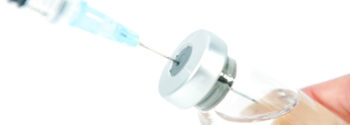Testosterone. What’s The Big Deal?
In short, testosterone is a hormone that helps make a male human, a man. Indeed, it plays a significant role in a man’s body, regulating bone mass, fat distribution, the production of red blood cells and sperm. And yes, it significantly aids in inducing muscle mass and strength development. Not the least, it definitely affects a man’s sex drive – or libido.
As with many bodily functions, testosterone production is a complex process. It’s instrumental in the development of male reproductive tissues such as testes and the prostate gland. It promotes secondary sexual characteristics such as the growth of body hair. In addition, testosterone is involved in an individual’s health and well-being, and in the prevention of osteoporosis. Insufficient levels of testosterone in men may lead to abnormalities including frailty and bone loss.
“I thought this is just a part of aging. I asked my friends if they felt the same way and some of them said that they had experienced the same issues around the age of 50. One of my friends suggested it might be low testosterone as he had the same issue a year before. He recommended that I book an appointment with Boston Medical Group Telemedicine.”
Testosterone is a steroid that’s biosynthesized in several steps from cholesterol. It’s converted in the liver to inactive metabolites (small molecules). In humans, testosterone is secreted primarily by the testicles of males and, in small amounts, the ovaries of females. Men, on average, have levels of testosterone 7 to 8 times as great as adult females. Daily production is about 20 times greater in men than in females (who are also more sensitive to the hormone).
Testosterone’s Big Role In The Body
Testosterone is the major sex hormone in males and performs some major roles, including:
• Penis and testes development
• Voice deepening during puberty
• Facial and pubic hair starting at puberty and possibly a role in balding
• Muscle size and strength
• Bone growth and strength
• Sex drive (libido)
• Sperm production
Adolescent boys with too little testosterone may have abnormal masculinization. For example, the genitals may not enlarge, facial and body hair may be scant and the voice may not deepen normally.
Testosterone may also help maintain normal mood. There may be other important functions of this hormone that have not yet been discovered.
Signals sent from the brain to the pituitary gland at the base of the brain control the production of testosterone in men. The pituitary gland then relays signals to the testes to produce testosterone. A “feedback loop” closely regulates the amount of hormone in the blood. When testosterone levels rise too high, the brain sends signals to the pituitary to reduce production.

Women Need Testosterone Too
If you thought testosterone was only important in men, you’d be mistaken. Testosterone is produced in the ovaries and adrenal gland. It’s one of several androgens (male sex hormones) in females. These hormones are thought to have important effects on:
• Ovarian function
• Bone strength
• Sexual behavior, including normal libido (although evidence is not conclusive)
The proper balance between testosterone (along with other androgens) and estrogen is important for the ovaries to work normally. While the specifics are uncertain, it’s possible that androgens also play an important role in normal brain function (including mood, sex drive and cognitive function).
https://www.health.harvard.edu/drugs-and-medications/testosterone–what-it-does-and-doesnt-do

Testosterone and Sexual Arousal
Testosterone isn’t the only fuel for a man’s sex drive and performance. But low testosterone can lower your ability to have satisfying sex. Lack of sex drive and erectile dysfunction are sexual problems that can result from low testosterone. If low testosterone is the cause, treating it can help.
“From that point on, I sleep better, I have loads more energy, and my wife tells me I have a new spark in my eyes”
There’s a rhythm to Testosterone levels, with peaks early each day, regardless of sexual activity. Men do go through hormonal cycles, with testosterone levels tending to peak in the early morning, and diminishing over the course of the day.
Positive correlations exist between orgasm experience in women and testosterone levels where relaxation was a key perception of the experience. There is no correlation between testosterone and men’s perceptions of their orgasm experience, and also no correlation between higher testosterone levels and greater sexual assertiveness in either sex. Sexual arousal and masturbation in women produce small increases in testosterone concentrations. The plasma levels of various steroids significantly increase after masturbation in men and the testosterone levels correlate to those levels. Healthy testosterone levels are important in maintaining fulfilling sex lives in both men and women.
Click here to read Part II: A Man’s “Time of the Month?”
Click here to read Part III: The Key to Prostate Health?

